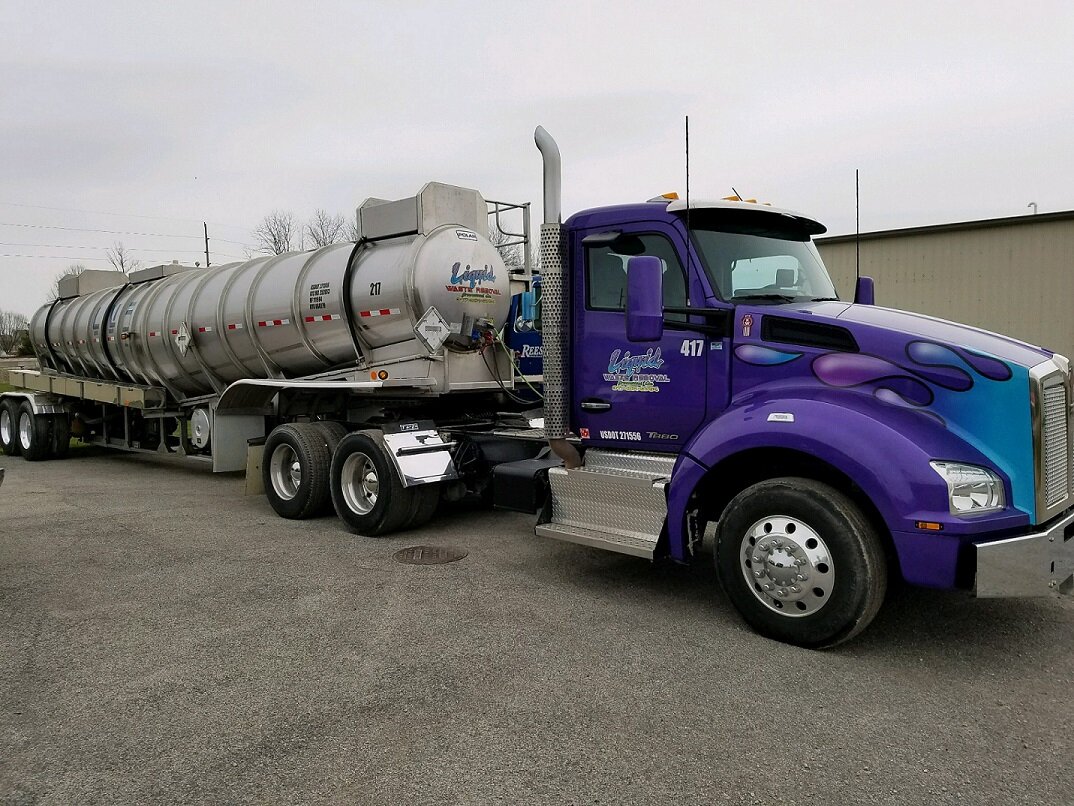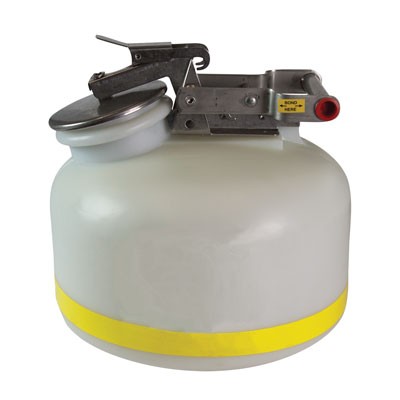Industrial Wastewater Treatment: Advanced Techniques for Effective Administration
Industrial Wastewater Treatment: Advanced Techniques for Effective Administration
Blog Article
Comprehending the Comprehensive Refine of Fluid Garbage Disposal: Ideal Practices and Environmental Influence Factors To Consider
The administration of liquid waste disposal is a diverse problem that calls for an extensive understanding of different best practices and their connected environmental effects. From the kinds of fluid waste created to the methods employed for collection, therapy, and last disposal, each action plays a vital duty in guarding ecological communities and public health. As regulatory criteria progress and innovation developments, the conversation around these procedures ends up being increasingly relevant. What ramifications do these adjustments hold for future sustainability efforts, and exactly how can stakeholders ensure that they are appropriately dealt with?
Kinds of Liquid Waste
Comprehending the various kinds of liquid waste is necessary for effective monitoring and disposal methods. Fluid waste can be broadly categorized right into a number of kinds, each requiring special handling and therapy strategies.
Industrial liquid waste typically contains harmful products, including heavy steels, solvents, and chemicals, produced throughout making processes. These wastes require strict regulative conformity to shield human health and the atmosphere. Residential fluid waste largely refers to wastewater produced from houses, consisting of sewage and greywater, which, although less poisonous, can still pose considerable dangers if incorrectly taken care of.
Agricultural fluid waste, consisting of drainage from ranches, commonly consists of fertilizers and pesticides that can bring about environmental deterioration if not dealt with properly. Clinical fluid waste, produced from health care centers, consists of contaminated liquids such as physical liquids and chemicals, requiring specialized disposal methods to avoid infection and environmental contamination.
Lastly, oil and grease waste, commonly generated by dining establishments and vehicle sectors, can create extreme clogs in drain systems otherwise taken care of appropriately. Comprehending these classifications assists in targeted approaches for therapy, conformity with guidelines, and reliable disposal methods, inevitably advertising environmental sustainability and public wellness safety and security.

Collection Approaches
Efficient collection techniques are critical for the correct management of liquid waste, making certain that it is gathered securely and successfully before therapy or disposal. Different techniques are used relying on the type of liquid waste generated, the volume, and the details attributes of the waste.
One common technique is making use of devoted collection tanks or sumps, which are created to record fluid waste at the resource. These systems typically include pumps that assist in the transfer of waste to bigger storage containers or therapy facilities. In addition, mobile collection units equipped with vacuum modern technology are used in circumstances where waste is generated periodically or in hard-to-reach areas.
For industrial setups, closed-loop systems can effectively reduce leaks and spills, permitting the recovery and reuse of liquid waste. It is additionally crucial to educate workers on correct collection procedures to alleviate risks connected with unsafe substances.
Furthermore, carrying out regular upkeep schedules for collection tools makes certain ideal efficiency and security. The integration of advanced monitoring systems can boost collection performance by supplying real-time information on waste levels and potential threats. On the whole, efficient collection methods are foundational to sustainable liquid waste administration techniques.
Treatment Procedures
Treatment procedures play an essential role in the administration of fluid waste, transforming potentially unsafe materials right into multiple-use resources or secure effluents - liquid waste disposal. These processes can be extensively classified into physical, chemical, and biological approaches, each customized to address details pollutants existing in the waste stream
Physical therapy techniques, such as sedimentation and filtering, work by eliminating put on hold solids and particulate issue. These techniques are commonly the primary step in the therapy chain, efficiently minimizing the tons on subsequent procedures. Chemical therapies involve making use of reagents to reduce the effects of unsafe compounds, precipitate heavy steels, or oxidize organic contaminants, thus enhancing the security of the effluent.
Biological therapy procedures, consisting of turned on sludge systems and anaerobic digestion, maximize the natural capabilities of microbes to break down natural matter. These techniques are specifically effective for wastewater containing eco-friendly toxins. Advanced therapy modern hop over to these guys technologies, such as membrane filtration and progressed oxidation processes, are increasingly used to accomplish greater degrees of purification.
Incorporating a mix of these therapy methods not only makes sure conformity with regulatory standards but additionally advertises ecological sustainability by recouping valuable resources from fluid waste.
Disposal Options
Just how can organizations ensure the risk-free and responsible disposal of liquid waste? Reliable disposal options are important for protecting public wellness and the setting. The main methods include land disposal, therapy, and incineration adhered to by discharge right into local wastewater systems.
Land disposal involves the cautious control of fluid waste in marked landfills, making certain that it does not leach right into surrounding soil or water. Incineration, on the various other hand, topics fluid waste to high temperature levels, transforming it into ash and gases, which require correct filtration to decrease exhausts. This approach appropriates for dangerous wastes that can not be dealt with via conventional ways.
In situations where fluid waste can be dealt with, organizations might go with biological or chemical therapy processes to neutralize dangerous components prior to discharging the treated effluent right into community systems. This course normally aligns with regulatory demands, guaranteeing that the effluent satisfies security requirements.
Ultimately, organizations should conduct extensive analyses of each disposal alternative to identify its helpful resources viability, thinking about factors such as waste composition, regulative conformity, and prospective threats to health and the setting. By selecting ideal disposal approaches, businesses can add to an accountable waste monitoring approach.
Environmental Influence
The environmental effect of liquid garbage disposal is an essential consideration for companies looking for to reduce their environmental impact. Improper disposal methods can bring about significant contamination of water sources, dirt deterioration, and damaging results on regional environments. For instance, harmful liquids can leach right into groundwater, presenting threats to drinking water products and aquatic life. Furthermore, the discharge of neglected or inadequately treated waste into surface waters can lead to eutrophication, bring about oxygen deficiency and the subsequent death of fish and various other organisms.

To minimize these influences, companies need to take on best methods such as applying extensive waste treatment procedures, promoting recycling and reuse, and sticking to regulative standards. By taking an aggressive method to fluid waste monitoring, entities can significantly decrease their ecological impact while sustaining lasting advancement objectives. Eventually, an extensive understanding of the environmental influences connected with liquid waste disposal is essential for notified decision-making and liable stewardship of all-natural sources.
Conclusion
Efficient monitoring of fluid waste is essential for guarding environmental stability and public health. By embracing ideal methods in collection, disposal, and treatment, alongside adherence to regulative criteria, the potential for unsafe contamination of communities can be considerably minimized. Constant improvements in technology and procedures add to lasting waste administration initiatives. Ultimately, a comprehensive understanding this page of fluid garbage disposal not only alleviates environmental influences however additionally fosters a dedication to responsible source monitoring and environmental stewardship.
The monitoring of fluid waste disposal is a multifaceted issue that calls for an extensive understanding of different ideal techniques and their connected ecological influences. From the kinds of fluid waste generated to the techniques used for collection, therapy, and last disposal, each action plays a vital duty in safeguarding communities and public health.The environmental impact of liquid waste disposal is an important factor to consider for companies seeking to decrease their ecological impact. Inevitably, a comprehensive understanding of the environmental influences linked with fluid waste disposal is necessary for notified decision-making and accountable stewardship of all-natural sources.
Eventually, a detailed understanding of liquid waste disposal not only mitigates environmental influences yet likewise promotes a commitment to accountable resource monitoring and ecological stewardship.
Report this page